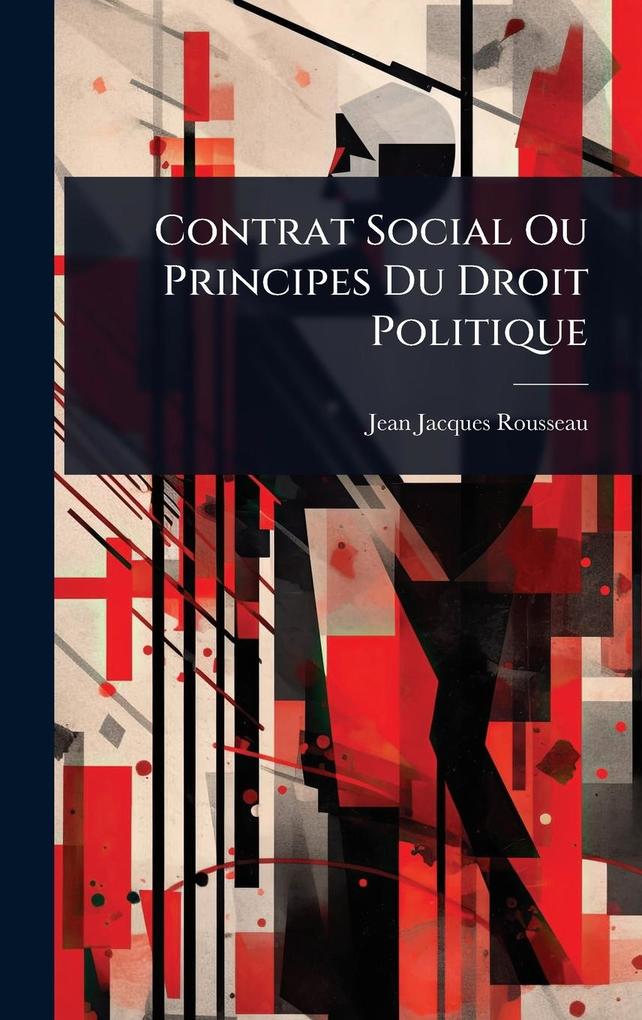
Zustellung: Mo, 21.07. - Fr, 25.07.
Versand in 2 Wochen
VersandkostenfreiBestellen & in Filiale abholen:
Du Contrat Social ou Principes du droit politique, published in 1762, is Jean-Jacques Rousseau's most influential work of political philosophy. In it, Rousseau theorizes about the best way to establish a political community in the face of the problems of commercial society. Rousseau claimed that the state of nature was a primitive condition without law or morality, which humans left for the benefits and necessity of cooperation. By joining together through the social contract and abandoning their claims of natural right, individuals can both preserve themselves and remain free. This edition also includes his Considà (c)rations sur le gouvernement de Pologne.
Rousseau's work has profoundly influenced political thought and served as an intellectual foundation for both the French and American revolutions. His ideas about popular sovereignty and the general will continue to resonate in contemporary debates about democracy and social justice.
This work has been selected by scholars as being culturally important, and is part of the knowledge base of civilization as we know it. This work was reproduced from the original artifact, and remains as true to the original work as possible. Therefore, you will see the original copyright references, library stamps (as most of these works have been housed in our most important libraries around the world), and other notations in the work.
This work is in the public domain in the United States of America, and possibly other nations. Within the United States, you may freely copy and distribute this work, as no entity (individual or corporate) has a copyright on the body of the work.
As a reproduction of a historical artifact, this work may contain missing or blurred pages, poor pictures, errant marks, etc. Scholars believe, and we concur, that this work is important enough to be preserved, reproduced, and made generally available to the public. We appreciate your support of the preservation process, and thank you for being an important part of keeping this knowledge alive and relevant.
Rousseau's work has profoundly influenced political thought and served as an intellectual foundation for both the French and American revolutions. His ideas about popular sovereignty and the general will continue to resonate in contemporary debates about democracy and social justice.
This work has been selected by scholars as being culturally important, and is part of the knowledge base of civilization as we know it. This work was reproduced from the original artifact, and remains as true to the original work as possible. Therefore, you will see the original copyright references, library stamps (as most of these works have been housed in our most important libraries around the world), and other notations in the work.
This work is in the public domain in the United States of America, and possibly other nations. Within the United States, you may freely copy and distribute this work, as no entity (individual or corporate) has a copyright on the body of the work.
As a reproduction of a historical artifact, this work may contain missing or blurred pages, poor pictures, errant marks, etc. Scholars believe, and we concur, that this work is important enough to be preserved, reproduced, and made generally available to the public. We appreciate your support of the preservation process, and thank you for being an important part of keeping this knowledge alive and relevant.
Produktdetails
Erscheinungsdatum
22. Mai 2025
Sprache
französisch
Seitenanzahl
450
Autor/Autorin
Jean-Jacques Rousseau
Verlag/Hersteller
Produktart
gebunden
Gewicht
803 g
Größe (L/B/H)
234/156/25 mm
ISBN
9781024479119
Bewertungen
0 Bewertungen
Es wurden noch keine Bewertungen abgegeben. Schreiben Sie die erste Bewertung zu "Contrat Social Ou Principes Du Droit Politique" und helfen Sie damit anderen bei der Kaufentscheidung.









